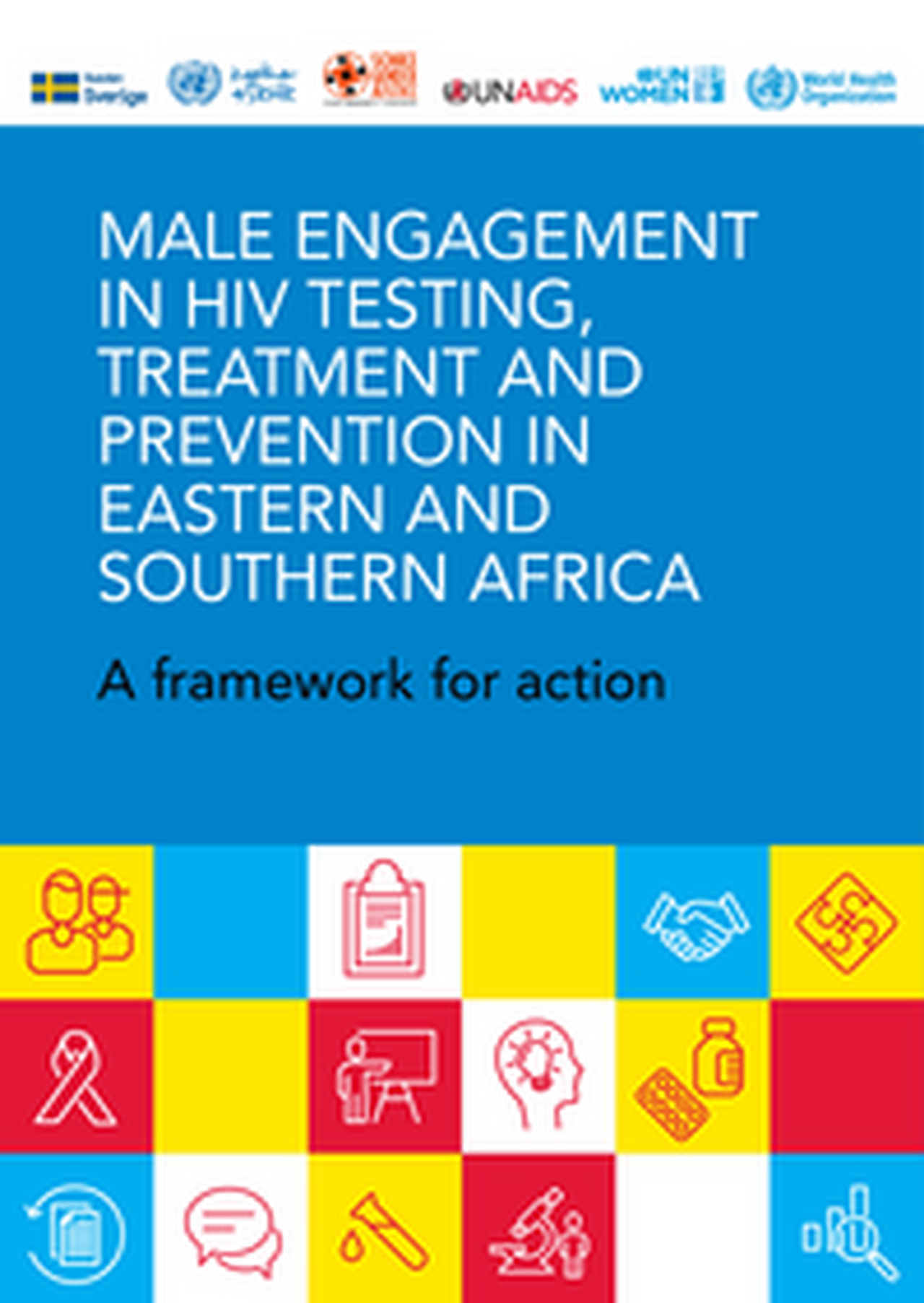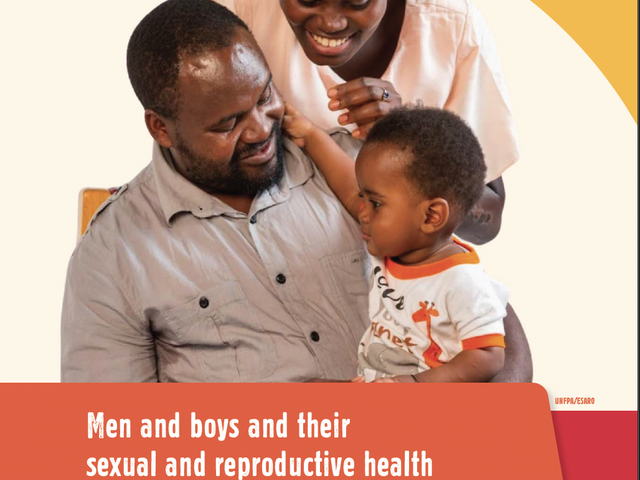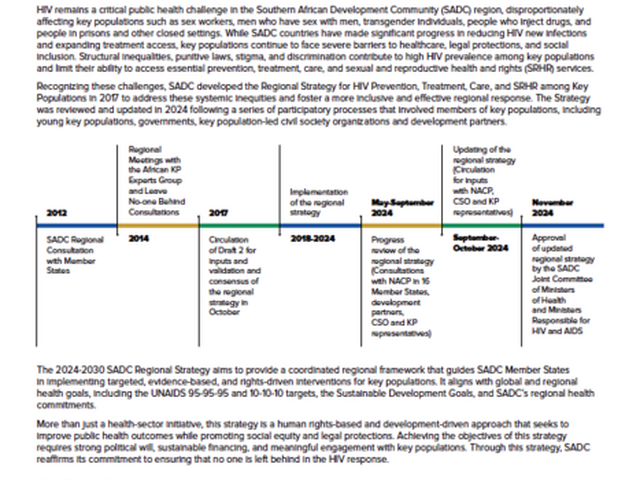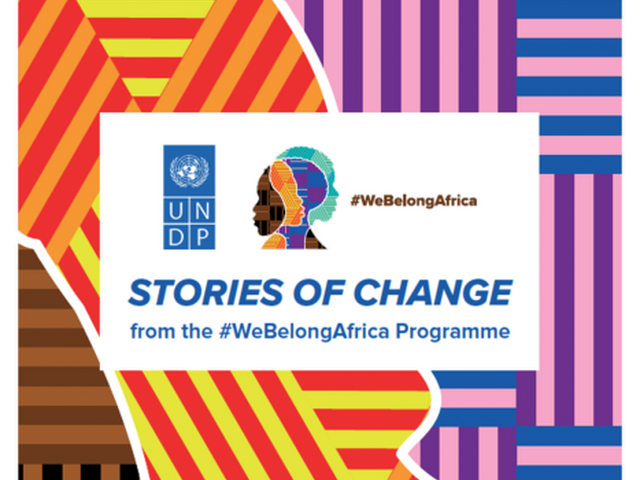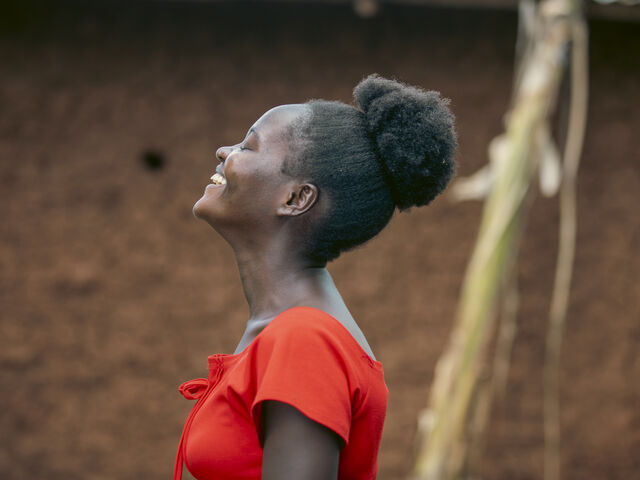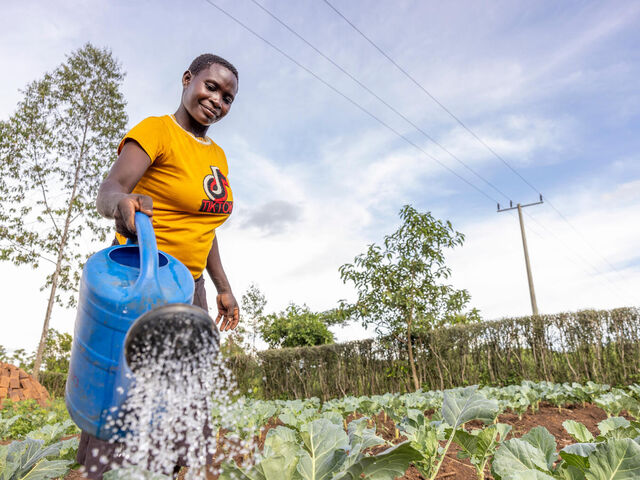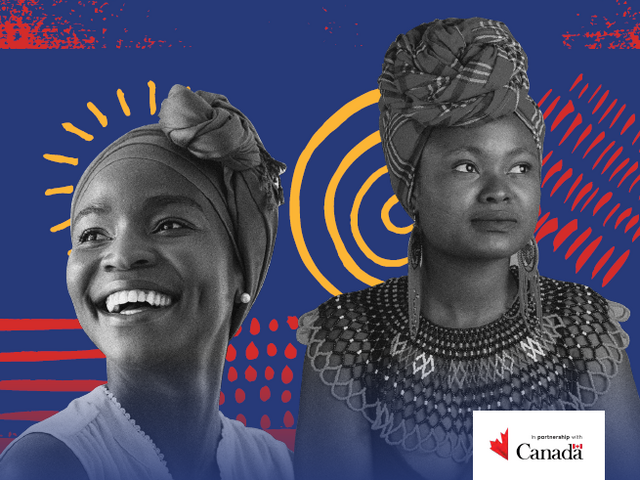Male engagement in HIV testing, treatment and prevention in Eastern and Southern Africa — A framework for action
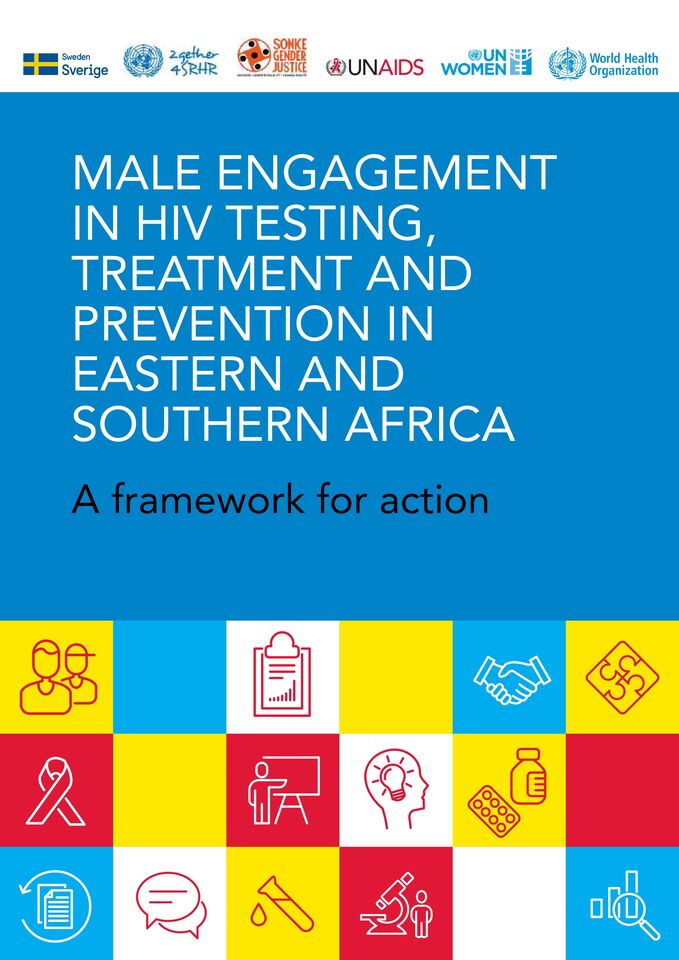
Launched in 2021 by UNAIDS in partnership with UN Women, Sonke Gender Justice, and WHO, the Framework for Action for Male Engagement in HIV Testing, Treatment and Prevention in Eastern and Southern Africa provides a foundational guide for countries to enhance their HIV responses by meaningfully engaging men and boys. Grounded in the Global AIDS Strategy 2021–2026, the framework supports efforts to reduce new HIV infections and AIDS-related deaths among men and boys while advancing gender equality.
Despite progress in addressing HIV, men and boys across Eastern and Southern Africa (ESA) remain significantly underrepresented in HIV prevention, testing, treatment, and care services. Compared to women, they are less likely to know their HIV status, initiate and adhere to antiretroviral therapy (ART), or remain engaged in care, resulting in higher mortality. However, when men do access treatment, their viral suppression rates are similar to those of women.
The framework consolidates existing research and best practices, highlighting systemic and gendered barriers that hinder male access to HIV services. These include harmful gender norms, limited entry points into the health system, and facility-based service delivery that does not align with men’s work patterns or health-seeking behaviors. Additionally, national health strategies often overlook men, focusing predominantly on women of reproductive age and children.
To address these gaps, the framework outlines key building blocks for designing, implementing, and monitoring male-centered interventions. These include innovative service delivery models—such as HIV self-testing, community-based ART distribution, and peer mentorship—as well as reforms in health policies and systems to create a more enabling environment for men.
Critically, the framework positions male engagement not as a parallel effort but as an integrated part of broader gender equality and health equity goals. It calls for inclusive, multisectoral strategies that challenge unequal power dynamics while ensuring that all individuals—regardless of gender—can access comprehensive HIV prevention and care.
